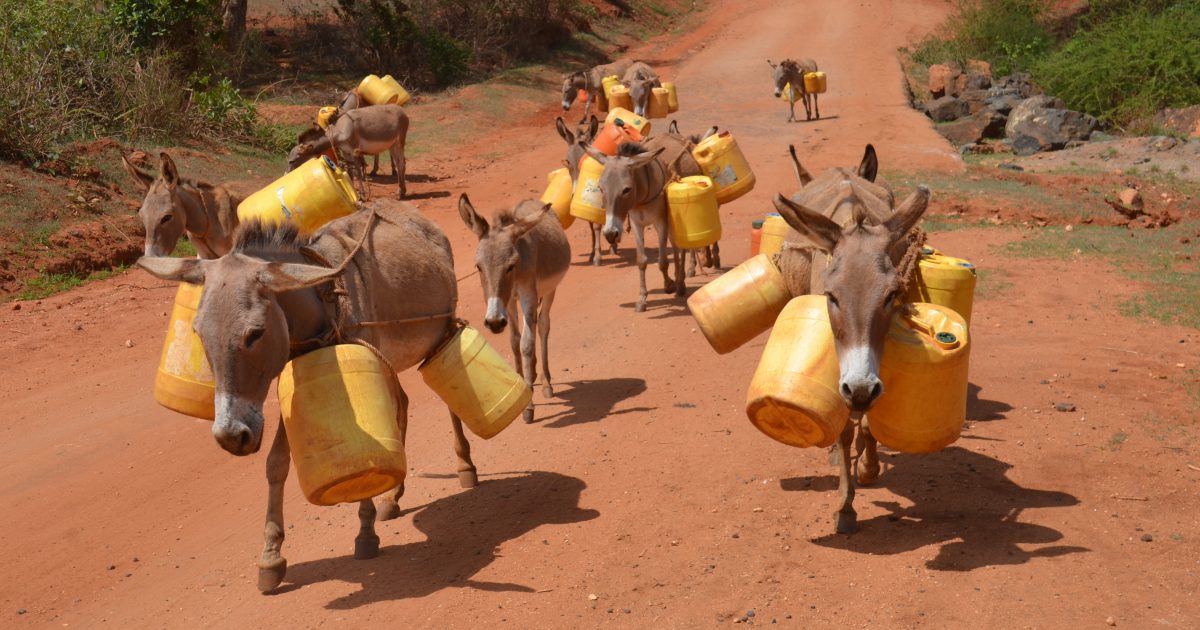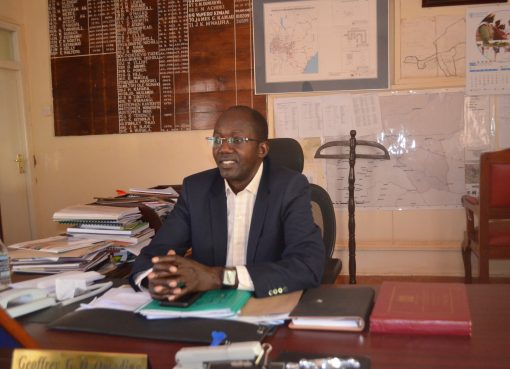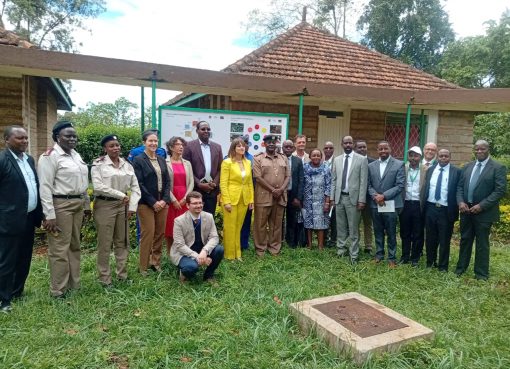Communities living in water catchment areas in Taita-Taveta County have asked the government to assist in safeguarding critical water sources in the region to save them from drying up as a result of destructive human activities.
The chair of Mwamusha Water Project Mr. Samuel Nyange says community water projects have come under critical threat from human activities such as farming in riverine zones, cutting down trees and planting of toxic tree species that take up a lot of water.
Speaking to KNA on Monday, Nyange asked the government to deploy more forest rangers to guard the forests and protect water sources.
“I plead with the government to cut down eucalyptus trees near the water catchment area. I have spoken about this in many meetings but nothing is happening. The trees suck up a lot of water from the stream and cause reduction of the water. They should be cut down and used for timber,” he said.
Mwamusha Water project serves over 2,700 households in 20 villages and 11 learning institutions. Regarded as one of the oldest community water projects in the region, Mwamusha gets her water from springs at the top of Mwambirwa and Mbololo Hills. The two springs drain at Mole River which flows down to the Mwamusha intake.
The intake was built over 100 years ago by the East African railways company. In 1912, the Kighombo Dam was constructed at the foot of Mwambirwa Hill where the water flowed in with an average low flow of 10 litres per second.
The water from the dam was then distributed to Mackinnon station where it was used in the steam engines and by railway personnel. Over the years, trains shifted to diesel and rendered the dam obsolete.
In 1992, the dam was handed over to the National Water Corporation and Pipeline Company where more connections were done from the Mwamusha intake to supply water to Voi, Rongé Nyika, Kighombo, Kirutai, Shelemba, Ikanga and others neighbouring regions for domestic use.
Nyange says managing the project after it was handed over to the community has not been easy. He says that some of the challenges facing the project included vandalism of the pipes that are later sold as scrap metal. There is also the challenge of replacing a century old pipe because hardwares no longer stock the type and quality of the pipes used for the project.
“The five-inch pipes are not sold in hardwares making it difficult to replace them. When the project was handed over to us, corruption took place and spare pipes and gadgets given to the then committee were sold,” he said.
More challenges have emerged as a result of climate change. The water flow reduces especially during the dry season. This forces farmers to cultivate near the banks of Mole River leading to little flow of water to the intake. Heavy deforestation at the water catchment areas had made the situation worse with the river being blocked by foliage of trees that are cut down further obstructing the water flow.
He called upon residents to avoid degrading the water catchment area and the river which interferes with the flow of the water.
“The same people who complain when there is no water in their pipes are the ones who are cutting down trees and practicing farming on the sources of water,” said Nyange.
He also pleaded for the removal of the eucalyptus trees for they drain a lot of water. The tree is said to consume up to 200 litres of water a day.Nyange said one of the main proposals to make the project sustainable is to have the beneficiaries and water users to consistently pay maintenance fees.
The money collected by the committee in each area is sent to Mwamusha water supply association for banking. The money is then used on payments including paying for conservation, repair and maintenance.
“We want to secure the intake area. We want people to cooperate in the payment of maintenance fees so that they can be used to revamp the water supply,” he said.
Leaders from the region have already started engagement with the community to encourage them to pay the requisite fee to keep the project running.
Mbololo Ward MCA Mr. Lawrence Mzugha said the County government had selected representatives of several villages whose water supply was disconnected after a dispute on charges to agree on modalities of getting water back.
He added that the villages were willing to go back to the old systems where those with tapped water were paid Sh200 monthly while those users without taps paid Sh100.
“We have agreed to return to the old system. We are now going to meet with the water project committee to talk and have villages without water start receiving this important commodity,” he said.
County Eco-Conservator Charles Kuria said the government was working closely with the community to conserve water sources and discourage deforestation. He said KFS and community conservation groups were conducting public awareness on the importance of conserving water sources.
“We are working with communities living in areas with such resources to encourage them to engage in more conservation activities. This will save the environment and secure water sources,” he stated.
By Whitney Zighani




